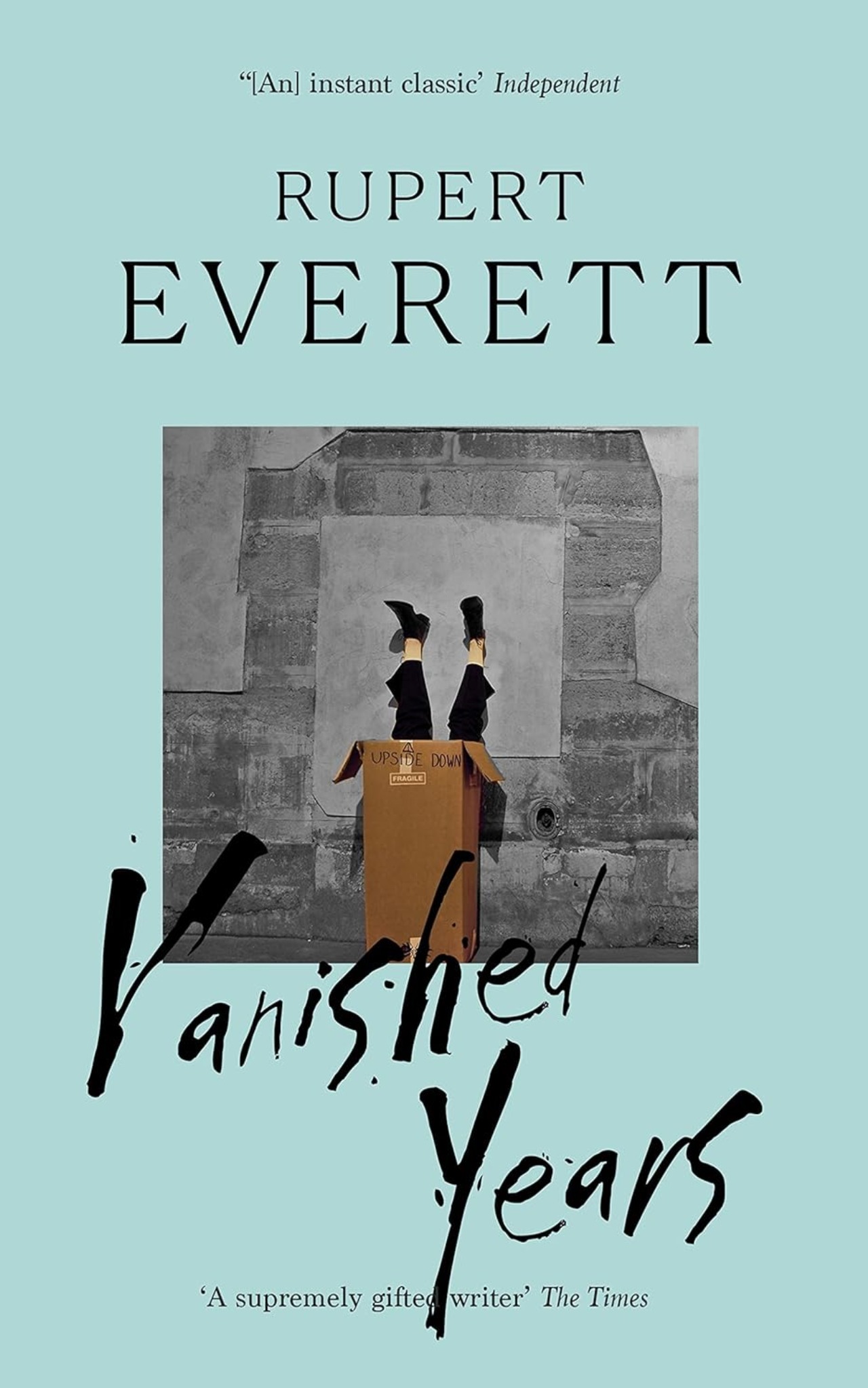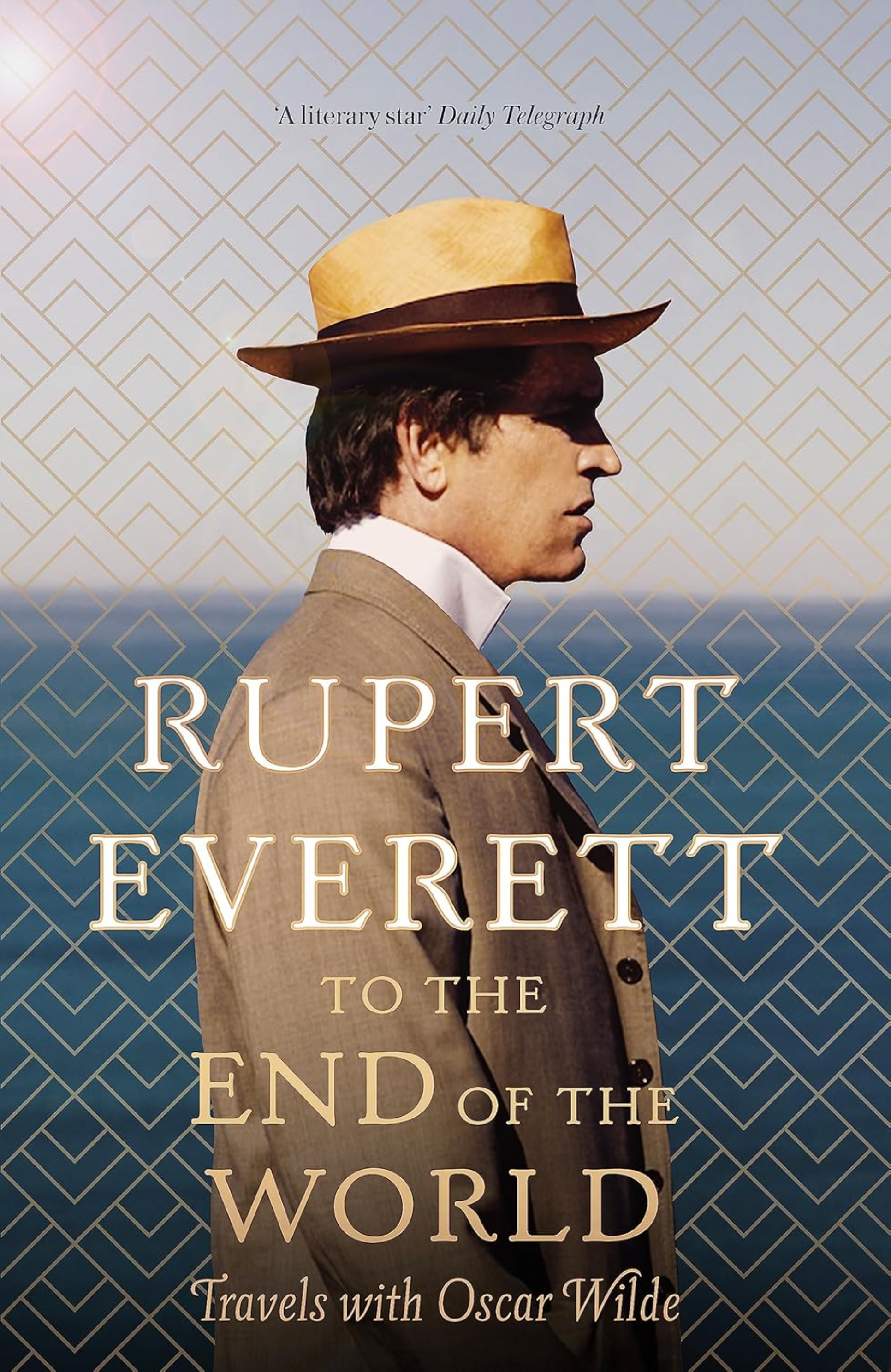The title of Rupert Everett’s story collection, The American No, derives from a practice employed by American movie studios, as the author describes in his one-page introduction to the collection. After listening to a would-be producer deliver their pitch, the studio heads will say something like: “Let’s do this. I’m psyched. We love you here at Bottomy Bay Productions.” Then they pat the producer on the back while exiting the studio… and the producer never hears from them again. That’s the American no. It’s an apt anecdote and an appropriate title for the collection, which reads like a series of Everett’s failed film pitches that deservedly produced American no’s from various studios.
Rupert Everett has been a familiar face and name for movie fans since his breakthrough role as Julia Roberts’ confidante in the smash 1997 comedy, My Best Friend’s Wedding. He has also written several novels and memoirs. However, although Everett has maintained a steady presence on stage and on the big and small screen for over 40 years, his appearances behind the camera, as writer or director, have been few and far between. That’s not for lack of trying, since Everett has been pitching various projects for years. His frustration seems to manifest itself
in the “stories” in The American No. These works read more like screen treatments that received American no’s from studios than short stories. Two of them are near-novella length, and one is an actual screenplay. In his tales, Everett drops celebrity names of actors and directors, like Madonna and John Schlesinger. I had difficulty determining if some stories were intended as fiction or memoir-style recollections of failed efforts on Everett’s part. Regardless, most of the stories were overlong, self-indulgent, filled with jokes that didn’t work, silly, and in need of severe editing.
The best stories in The American No are the shortest. One bears the unfortunate title “A Short Film. ‘Sort Me Out Before We Go-Go.’” In a brief introduction, Everett explains the story originated as an idea he gave to a film school student for a ten-minute short. Not surprisingly, considering the general theme of this collection, the student rejected Everett’s idea. The actual story involves a possibly romantic encounter between a 40-something self-described Russian countess and a 20-something man. The pair sit at adjacent tables while enjoying an afternoon tea in a British tea room. It’s a five-minute read that would be an excellent short story if Everett had jettisoned the pointless introductory paragraph.
“The Wrong Box” involves a pitch that Everett delivered to director John Schlesinger, while the director was reading another one of Everett’s scripts that involved a funeral in Los Angeles. Sensing that he wasn’t getting anywhere with the written script in Schlesinger’s hands, Everett instead segued to a story about another funeral of an acquaintance he attended in Paris years earlier. Because they were on LSD at the time, Everett and his entourage somehow wound up at the funeral of a dead Vietnamese child instead. The story makes little sense and includes a good bit of back-and-forth dialogue between Everett and Schlesinger, but it is somewhat funny. (Again, I don’t know how autobiographical any of this material is.)
That’s the good news in The American No. One good story, one sort-of-funny story, and one sharp introduction totaling about 20 pages in a 320-page book. Several of the other stories have introductions in which Everett describes how he came to write them. Most of them have scattered instances of Everett’s wit. The stories all, to some extent, involve unsuccessful project pitches. Readers will easily see how none of them ever received an American yes from the studios.
One story, “The Morning After and the Night Before,” is a tale of the last days of Oscar Wilde. Everett has been associated with Wilde his entire career, having played the author on multiple occasions and having starred in several films based on Wilde’s works. According to Everett, the actor eventually wrote, directed, and starred in a movie entitled The Happy Prince. That film originated in Everett’s story, “The Morning After and the Night Before.” Everett’s movie was a flop, enlivened by his performance as Wilde. “The Morning After” didn’t have the benefit of the actor’s stage presence and was a confusing mess, especially for those unfamiliar with Wilde’s life story.
The last two “stories” in The American No (and I use that term very advisedly here) are the worst. They also take up half the book. “Ten-Pound Pom” is the only story that reads as pure fiction and not as something involved in a failed Everett film project. It’s the story of a young man named Tom whose family squandered its wealth and land holdings over half a century. After World War II, Tom takes his meager inheritance and buys a third-class ticket on a third-rate ocean liner going to Australia. (Australia was trying to recruit new immigrants from other parts of the Commonwealth then.) This voyage took place when ocean liners were a frequent mode of intercontinental transportation instead of merely a means of spending a vacation. The most interesting detail in the story was the description of Tom’s third-class cabin (four bunks on each side of the cabin, accommodating eight male passengers). Tom’s trip took six weeks; the story felt like it took six weeks to read. It’s dull, listless, and depressing, so much so that I hoped the ship would run into a storm or an iceberg to make the story more interesting.
At least “Ten Pound Pom” fits into the traditional story format. The last entry in Everett’s collection, “The End of Time,” is primarily a rejected script Everett wrote for a possible television broadcast. “The End of Time” refers to Marcel Proust’s massive seven-volume novel, In Search of Lost Time. Everett’s script is an adaptation of the novel’s first volume. After describing how he came to write the script, Everett presents it in screenplay format. It comprises 90 scenes of set direction and dialogue. The penultimate scene reads, in its entirety: “89. Passage Night. Jupien has been listening at the door. Now he bursts in.” Ninety scenes like that will tax the patience of most readers. I won’t get into a description of the literary merits (or the monotony level) of In Search of Lost Time. However, anyone who is at all familiar with the work will realize that a television version of it is doomed to fail. Everett’s screenplay quickly garners an American no. He also adds some bitter commentary in his introduction to the screenplay, bemoaning that he’s never had the opportunity to adapt Graham Greene’s Travels with My Aunt. (Everett conveniently ignores the excellent 1972 movie adaptation of Greene’s novel that earned Maggie Smith an Oscar nomination for playing the aunt.)
Everett’s final introduction to “The End of Time” encapsulates The American No. It’s not so much a collection of stories as a collection of grievances Everett has accumulated for his failed projects. It’s hard for readers to know where Everett’s real-life pitches end and the fictional stories begin. It’s much easier for readers to see why most of these projects failed as studio pitches or fictional stories. The book has only one story, “Sort Me Out,” that I thoroughly enjoyed, and even that one was marred by a needless introduction. Most of the rest were overlong, silly, unfunny, and poorly edited, with an overlying blanket of authorial frustration. My guess is that Everett wrote this book to fare better with a literary audience the second time around than he did with studio executives initially. However, it deserves a very vocal “no” from readers.
NOTE: The publisher graciously provided me with a copy of this book through NetGalley. However, the decision to review the book and the contents of this review are entirely my own.
In this clip, author Rupert Everett talks about The American No on the Chris Evans Breakfast Show :
Read other reviews of The American No:
Rupert Everett has enjoyed a 40-year acting career on stage and screen. He first came into public attention in the early 1980s when he was cast in Julian Mitchell’s play and subsequent film, Another Country, for playing an openly gay student at an English public school in the 1930s. Since then, his movies include My Best Friend’s Wedding, Shakespeare in Love, The Madness of King George, and as the Duke of Wellington in Napoleon. He is also the author of two novels, three memoirs, and a collection of short stories.
Header Photo: "Riot Radio" by Arielle Calderon / Flickr / CC By / Cropped
Silver Screen Video Banner Photos: pedrojperez / Morguefile; wintersixfour / Morguefile
Join Button: "Film Element" by Stockphotosforfree
Twitter Icon: "Twitter Icon" by Freepik
Facebook Icon: "Facebook Icon" by Freepik
LinkedIn Icon: "LinkedIn Icon" by Fathema Khanom / Freepik
Goodreads Icon: "Letter G Icon" by arnikahossain / Freepik
Rupert Everett: "Rupert Everett at the Chiswick Cinema" by Roger Green / Flickr / CC BY-SA 2.0
Certain images on this site appear courtesy of Amazon.com and other sponsors of Silver Screen Videos for the purpose of advertising products on those sites. Silver Screen Videos earns commissions from purchases on those sites.
© 2025 Steven R. Silver. All rights reserved.







